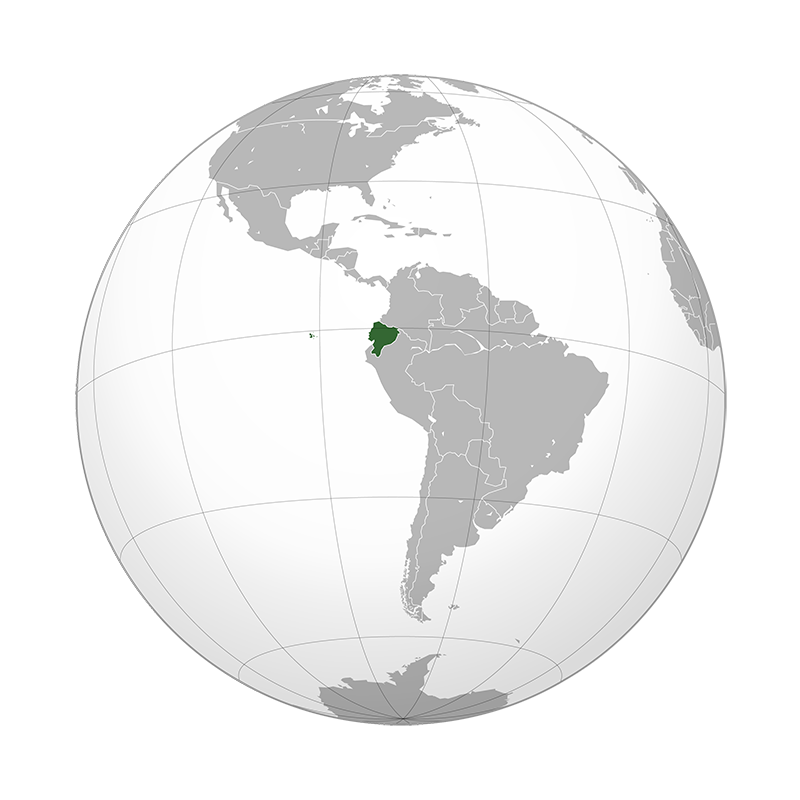
- Population:
- 18,135,000
- Religion:
- Christianity
Ecuador was part of the Inca Empire before Spanish colonization in the 16th century. It gained independence in 1822, initially joining Gran Colombia before becoming a separate nation. The 20th century saw political instability, economic challenges, and territorial disputes with Peru. Today, Ecuador is known for its biodiversity, including the Galápagos Islands, and has developed a mixed economy based on oil, agriculture, and tourism.
Ecuador is a country in northwestern South America, bordered by Colombia to the north, Peru to the east and south, and the Pacific Ocean to the west. It also includes the Galápagos Islands in the Pacific. Covering an area of approximately 283,561 square kilometers, Ecuador has a population of about 17.5 million people as of 2023. The capital is Quito, while the largest city is Guayaquil. The official language is Spanish, with recognized regional languages including Kichwa and Shuar. Ecuador operates as a unitary presidential republic. The economy is diverse, with key sectors including petroleum, agriculture, and tourism. Ecuador is one of 17 megadiverse countries in the world, hosting many endemic plants and animals, especially in the Galápagos Islands. It is a member of the United Nations, the Organization of American States, and the Non-Aligned Movement.






